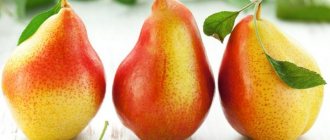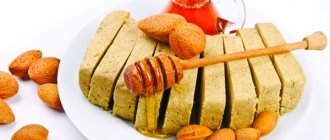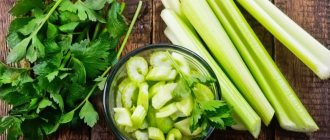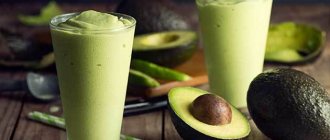When introducing a new dish, a young mother always wonders whether it is harmful to the child. Even in the summer, when you want to pamper yourself with sugar watermelon, you have to take into account all possible risks, and this is serious, because melons can be quite dangerous to health. Before buying a green berry, it is important to find out exactly whether watermelon is suitable for breastfeeding a newborn.
Watermelon during lactation
The daily diet of a nursing mother should include a high content of vitamins and minerals. For the full composition of breast milk, a sufficient supply of various substances is required. Therefore, it is necessary and possible to eat watermelons while breastfeeding, since they have many beneficial qualities for the female body. And they are simply very tasty - why shouldn’t a young mother treat herself to the aromatic pulp.
- Vitamin and mineral composition. The juicy pulp of watermelon contains considerable reserves of calcium and magnesium, vitamin C and iron. These substances are actively consumed during milk production. Watermelon during breastfeeding helps replenish their reserves in the mother's body.
- Water content. Drinking plenty of fluids during lactation is a necessary condition for a sufficient supply of breast milk. Watermelon pulp contains up to 90% water. By consuming watermelon while breastfeeding, a young mother quenches both hunger and thirst
- Fructose. The juice contains a lot of fructose. It supplies the body of a nursing mother with the energy so necessary for daily care of the baby.
- Cellulose. Many young mothers suffer from constipation after childbirth. The high content of plant fiber will help cope with this delicate problem. Often a young mother also suffers from edema. Watermelon juice has a good diuretic effect on the body and will help get rid of excess water.
A good ripe berry has not only a lot of useful properties, but also excellent taste.
The pleasant aroma will leave few people indifferent. For a young nursing mother, positive emotions are especially necessary. Another thing is that the fruit needs to be chosen correctly.
Watermelon during breastfeeding
Is it possible for a nursing mother to eat watermelon? This question worries many women, and often many women unjustifiably refuse to eat it. But, in reality, watermelon can be consumed during lactation, because it is very tasty and healthy.
According to many experts, watermelons are classified as low-calorie dietary products that can be enjoyed during the appropriate season.
This product mostly consists of watery pulp, due to which the entire body is washed.
With the help of watermelons, you can easily cleanse the body of excess salts, toxins and waste that accumulate in and around cells.
It is due to the removal of waste and toxins that well-being and health improve with proper consumption of watermelons. In addition, watermelons have diuretic effects, which helps get rid of swelling and cleanse the kidneys.
However, if you over-consume watermelons, this can increase the load on internal organs, including the kidneys and digestive system.
Possible harm
Breastfeeding is the most important condition for good health and growth of the baby. Many babies are small and weak after birth, but their bodies can withstand innovation. Some are less fortunate, and the child may suffer from allergies.
During pregnancy, a young mother often treats herself to delicacies. In theory, the baby should have gotten used to the foods he consumed. But in reality, the situation is such that an excess can easily cause an allergy after birth if the expectant mother is overly addicted to any delicacy.
Allergic reactions to food occur in the form of skin rashes. Many children, fortunately, do not suffer from allergies, but some are prone to quite severe allergic reactions. Before deciding for yourself whether watermelons can be consumed while breastfeeding, it is necessary to take into account the individual characteristics of the infant. Therefore, the mother needs to carefully monitor the baby’s reaction if she decides to try a new product.
Nowadays, watermelons are on sale all year round, the prices are off the charts, but there is no need to talk about the benefits. This is usually an imported product. You should not choose such fruits. Overseas berries can become a source of a lot of unnecessary, often very harmful substances.
Watermelon is capable of accumulating a considerable amount of nitrates, the use of which is unacceptable during lactation and can cause serious poisoning for both the mother and the infant.
What does a watermelon consist of?
As people say, you can get drunk and full of watermelon. And you can’t argue with that. However, what is useful in such a giant berry, besides water? The detailed chemical composition of watermelon per 100 g of product is presented in the table:
| The nutritional value | |
| Calorie content, kcal | 27 |
| Proteins, g | 0,6 |
| Fats, g | 0,1 |
| Carbohydrates, g | 5,8 |
| Water, g | 92,6 |
| Dietary fiber, g | 0,4 |
| Organic acids, g | 0,1 |
| Ash, g | 0,4 |
| Vitamins | |
| Vitamin A, mcg | 17,0 |
| Vitamin B1, mg | 0,04 |
| Vitamin B2, mg | 0,06 |
| Vitamin B6, mg | 0,09 |
| Vitamin B9 (folic acid), mcg | 8,0 |
| Vitamin C, mg | 7,0 |
| Vitamin PP, mg | 0,2 |
| Vitamin PP (niacin equivalent), mg | 0,3 |
| β-carotene, mg | 0,1 |
| Macro/microelements | |
| Iron, mg | 1,0 |
| Potassium, mg | 64,0 |
| Calcium, mg | 14,0 |
| Phosphorus, mg | 7,0 |
| Magnesium, mg | 224,0 |
| Sodium, mg | 16,0 |
So, after analyzing the composition of watermelon, we can conclude that it is a fairly enriched food product, and not just water. For pregnant women and nursing mothers, the presence of significant amounts of iron, calcium, magnesium and vitamin B9 (that same folic acid) is especially valuable. I have already written about the importance of taking folic acid during pregnancy.
Calcium is so important for the strengthening and growth of a child’s skeletal system. The baby receives the treasured macronutrient from the mother’s milk, who, in turn, is obliged to eat well and not allow the macronutrient level to drop below normal, otherwise health problems will begin.
Iron, in turn, helps pregnant and nursing mothers overcome anemia, which so often plagues women during pregnancy and breastfeeding. By the way, do you know the reason for the drop in hemoglobin levels during pregnancy, which is inextricably linked with the amount of iron in the blood? I recommend reading my article about low hemoglobin in pregnant women and children under one year old.
A lot can be said about every micro- and macroelement, about every vitamin, because they are all so important and necessary for normal life.
First try
When can you eat watermelon while breastfeeding? Despite all the advantages, you should not introduce a new product into the mother’s diet in the first month of the baby’s life. Newborns can be very sensitive to such products. Like all bright and especially red fruits and vegetables, watermelon can cause a severe allergic reaction. Therefore, the longer a nursing mother refrains from eating treats, the better. Particular care should be taken when introducing watermelons into the diet of a nursing mother if there is a risk of hereditary allergies in the baby.
When starting to eat watermelon during breastfeeding, you shouldn’t get too carried away. To prevent possible harm, you can start the test with a small piece. The absence of a negative reaction will indicate that a young mother is allowed to eat watermelons while breastfeeding. Subsequently, the number increases.
What harm can the berry cause to a nursing mother and baby?
A nursing woman can use this product, but it is worth remembering that there is no need to get carried away with it. Moreover, cases of watermelon poisoning, gastrointestinal disorders and allergic reactions are even more common. And while breastfeeding a newborn, a mother must carefully approach the issue of her nutrition.
Often the berry contains a large amount of nitrates, which unscrupulous producers stuff watermelons with so that their product gets to the shelf as quickly as possible.
Therefore, a nursing mother should eat this product no earlier than the end of August or the beginning of September, when you can be sure that the striped delicacy has ripened naturally.
It is also important to remember that excess nitrates pass into breast milk, and, consequently, into the baby, which can harm the baby’s body. If after a woman has eaten several pieces, she or the child feel unwell, it can be considered poisoning. The following symptoms will indicate it:
- bowel dysfunction;
- temperature increase;
- nausea or vomiting.
In this case, you must immediately seek medical help.
Despite the fact that watermelon is extremely useful for a woman after childbirth and during breastfeeding, it is a rather allergic product. Naturally, if mommy has even a slight allergy to berries, it is better not to eat them at all during lactation. It is also necessary to carefully monitor the baby’s body’s reaction to the product; if diathesis occurs, you must immediately stop eating it, even in small doses.
Watermelon should also not be eaten by women suffering from certain diseases:
- diabetes mellitus;
- cholelithiasis;
- diseases of the urinary system;
- acute or chronic pancreatitis.
What time to administer
As practice shows, all mothers can drink watermelon while breastfeeding. The main thing is to correctly introduce it into the diet. It is not recommended to start eating melons earlier than three months after the appearance of breast milk. In the first 60 days, the young mother must adhere to a strict diet. This will allow the child to get used to the new diet and learn to perceive the nutritional components received with milk. Starting from 4 months, a woman can diversify her menu.
A new product should be introduced gradually. At the same time, portions should be small. After 5 days, the amount of product can be increased. In this case, it is necessary to carefully monitor the child’s condition. If his stomach hurts or a rash appears, then he should refuse watermelons.
How to choose a berry
When purchasing, you should pay attention to some signs that indicate that the buyer has a worthy product:
- Light weight with large dimensions. Heavy watermelons are too watery and not as sweet. Although sometimes this option may be preferable.
- Dry stalk. During ripening, the water content gradually decreases and the stalk dries out.
- A clear pattern and shiny surface also indicate maturity.
- When squeezed, the ripe fruit cracks loudly.
- The berries require a lot of sun to ripen. A watermelon saturated with sunlight will have a yellow earthen spot.
- When tapping, a dull sound should be heard.
- No damage to the surface.
It is not always necessary to choose large specimens. Often smaller berries have a sweeter taste. Before use, wash the watermelon thoroughly and wipe dry. Must be stored in the refrigerator. Cut fruits usually spoil quickly at room temperature.
For better absorption, eat the juicy pulp between meals. If you allow yourself a treat immediately after a meal, there is a risk of digestive problems.
Many foods have a high absorption rate and interfere with the digestion of heavier ones. Watermelons also have this feature.
By approaching menu planning wisely and introducing new products with caution, you can greatly expand the diet of a nursing mother. Adequate nutrition is necessary during lactation. A sufficient supply of the body with the most important elements will not only ensure long-term breastfeeding, but will also allow the young mother not to lose all her strength as the baby grows up.
In the first year of a baby’s life, a nursing woman has to perform a lot of responsibilities every day. It is important for babies to have healthy mothers. Eating watermelons will help maintain health and improve the performance of a young mother.
To avoid upset of the digestive system, buy berries only in season. Fruits purchased before the required ripening period absorb large amounts of nitrates, which cause harm to the body and also end up in milk.
In order for the berry to bring only benefits and delight you with its excellent taste, you need to follow simple recommendations for choosing:
- You cannot buy cut copies;
- there should be no cracks or dents on the surface;
- It is better to purchase at the end of August and until mid-September. It is forbidden for nursing mothers to consume fruits that appear on sale in early August;
- Do not eat immature and lethargic specimens;
- when pressed, the berry should crunch;
- the top layer should be shiny;
- the berry should have a dry tip and a yellow spot on the side;
- preference is given to medium-sized fruits weighing about 5 kilograms. Large specimens absorb large amounts of nitrates;
- Also, do not take small watermelons. They contain few useful elements;
- the fruit should be large but light;
- You cannot purchase fruits that are heaped on the ground and sold along the road;
- when tapped, the sound should be dull;
- there should be no plaque on the crust;
- purchase only from a trusted place;
- you cannot buy discounted copies that have been lying in the sun for a day;
- To check ripeness, you cannot ask to cut a watermelon. When unwashed fruits are cut, infections on the rind enter the pulp and cause severe harm to the body;
- the crust should be strong, brightly colored, with rich stripes.
A nursing mother must check the piece for nitrate content before consumption.
It's very easy to do this at home:
- Pour a glass of water. Cut off a piece of pulp and place in liquid.
- Leave for a few minutes and look at the color of the liquid. If it turns pink, it means that mom should not eat the berry, as it contains a large amount of nitrates. A pure watermelon will simply make the liquid cloudy.
Rules for eating watermelon for a nursing mother
When planning to diversify your diet with a watermelon slice, a nursing mother must remember the following:
- if one of your close relatives is allergic to this berry, it is better to refuse it and not take risks;
- Watermelon is introduced into the diet gradually; you cannot eat the whole fruit at once;
- the berry cannot replace normal food, but it is not advisable to eat it after a heavy lunch; nausea, vomiting, and signs of poisoning may appear (watermelon can be eaten with a piece of white bread).
Before buying a watermelon, it is important to make sure it is ripe. A fruit that is not too ripe can cause poisoning. Ripe berries have dry tails and a clearly visible yellow spot on the side, which appears due to lying on the ground for a long time. The watermelon rind should be intact, without dents or cracks through which infection could penetrate.
The purchased watermelon should first be tried by one of the family members, and only after 30-40 minutes, having made sure that there are no negative reactions, can the nursing mother eat a small slice.
High-quality berries can be found on the market towards the end of July. It is the second half of summer that is the time for its ripening in natural conditions. Early watermelons are grown with the addition of various growth and ripeness accelerators; they may contain harmful impurities and nitrates. For a normal healthy body, such a watermelon will be relatively safe, but a nursing woman should refuse such a delicacy.
When eating watermelons, the main thing is compliance. Overeating should not be allowed under any circumstances. If after eating the first piece there is an unpleasant aftertaste in the mouth, heartburn and nausea appear, the stomach is washed out and the berry is thrown away.
Popular articles for weight loss and health
Chia pudding: recipe with coconut milk
Diet 5 spoons: menu for the week real reviews
Homemade granola diet recipe
One Glass Diet
Watermelon is a tasty and very healthy berry, the pulp of which is rich in vitamins and beneficial minerals. The berry is especially beneficial for young breastfeeding women. It contains all the substances necessary for a speedy recovery after childbirth. The mother’s consumption of watermelon pulp also has a beneficial effect on the baby’s health, because most of the vitamins she receives will enter his body along with breast milk. The only negative is the high level of nitrates in the berries. Watermelon extracts them from the soil in enormous quantities.
Why is it dangerous?
The sweet fruit is a record holder for the accumulation of nitrates. They can cause the child:
- vomiting;
- poisoning;
- digestive disorders;
- increased gas formation.
Watermelon pulp has a bright red color, and all products with a red color are prohibited for the first time during breastfeeding.
Attention! If the mother nevertheless decides to eat the juicy berry and notices signs of poisoning in the baby after some time, you should immediately call an ambulance.
You should not eat watermelon if a woman has serious kidney disease, sand or stones in them.
Is it possible or not?
1.
Condition
No. 1:
introduction in the first days after childbirth: you are not allergic, you do not have chronic gastrointestinal diseases.
– Eat 200-300 grams of fresh, ripe watermelon in the first half of the day. Monitor your baby's skin and stool. After a day, if there is complete absence of reaction, feel free to introduce watermelon, but in the first month do not eat more than 1 kg. in Week. Do not eat the berries immediately before or after meals (the likelihood of fermentation increases tenfold).
2.
Condition
No. 2
of entry in the first month: you have had and are experiencing allergic reactions (any: itchy skin, rashes, rashes, etc.) to different products.
– In this case, administration should begin no earlier than the first or second month after birth. The scheme and recommendations are the same as in the first condition. Take 200-300 grams of fresh, ripe watermelon, eat it in the daytime and monitor your child’s reaction throughout the day.
Pediatricians have nothing against this product, but at the same time do not recommend using it daily and in large quantities.
How to avoid trouble
So, watermelons are quite acceptable during breastfeeding, but we should not forget that these fruits can cause poisoning, allergies and other unpleasant phenomena. To avoid this, you need to choose the right product. Do not forget that watermelons ripen only at the beginning of autumn. You should not buy melons in the spring or even in the middle of summer. Such products can be poisoned by nitrates. It is also not recommended to eat unripe watermelons.
Fruits should only be purchased whole, without cracks or cuts. You should also choose those berries that are not lying on the ground, but in special trays. You should not buy watermelons that are sold along the roads.
Contraindications
Watermelon is good for you, but not for everyone. In the presence of certain conditions and diseases, this berry can worsen your health. Therefore, before deciding to include the striped fruit in the diet, a nursing woman should familiarize herself with its contraindications.
You should avoid eating berries in the following cases:
- colitis;
- individual intolerance;
- loose stools;
- disturbances in the functioning of the stomach (gastritis, ulcer);
- urolithiasis;
- duodenal ulcer;
- kidney disease (pyelonephritis, organ failure);
- the presence of stones in the gall bladder.
People with diabetes, pancreatitis, and chronic gastrointestinal pathologies should introduce watermelon into their diet only with the permission of the attending physician.
To prevent the appearance of unpleasant symptoms after eating juicy berries, you need to know and follow the following precautions:
- wash the fruit before cutting;
- Before eating berries, check them for the presence of fertilizers. There are special devices for this - a nitrate meter and indicator strips. You can use traditional methods. For example, you should put the mashed pulp in a glass of water. If the liquid becomes cloudy and turns light pink, this means the watermelon is good. If the water turns reddish, this indicates the presence of harmful chemical elements in the fruit;
- Don't eat watermelon first. It’s worth asking someone in your household to try the berry. If that person does not develop symptoms of poisoning, then the young mother can eat a piece of red pulp;
- Avoid eating berries if you have an allergic reaction. The red fruit can increase the severity of pathological symptoms;
- Do not eat watermelon after a heavy meal. This increases the likelihood of fermentation in the intestines and flatulence;
- Don't eat watermelon at night. It has a diuretic effect. This can have a negative impact on the quality of your sleep;
- If undesirable symptoms appear, you should stop further consuming the berry and consult a doctor.
Watermelon is contraindicated if the child or mother has:
- allergies;
- diabetes mellitus;
- kidney stones;
- pancreatic diseases.
When diathesis appears in a newborn, it is necessary to exclude sweet products from the diet.
Important! It is best to start consuming watermelon from the end of August, when the berries ripen naturally.










